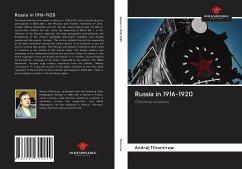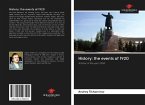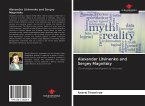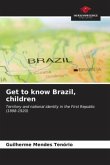The book examines the events in Russia in 1916-1920, which include Russia's participation in World War I, the February and October revolutions of 1917, foreign military intervention and the civil war. Tsarist Russia was not able to successfully conduct the war. Since the beginning of World War I, in the interests of the financial oligarchy, the large bourgeoisie and landlords, the dictatorship of the military liquidated democratic freedoms and forcibly suppressed the popular masses. The military dictatorship and the weakening of the labor movement allowed the ruling classes of all countries to use the war to increase their profits. The February and October revolutions were a kind of response to the actions of the tsarist power. The foreign powers took advantage of the weakening of Russia and sent their troops to capture it, one of the organizers of the anti-Soviet intervention, U. S. Pushkin. Churchill openly announced the "campaign of 14 states" organized by the Entente. The "White Movement" received huge military assistance from the Entente. "Military communism" is a Russian version of the widely practiced at that time state regulation of the economy of the countries participating in World War I. Data is also provided on events in the Orenburg region.
Bitte wählen Sie Ihr Anliegen aus.
Rechnungen
Retourenschein anfordern
Bestellstatus
Storno








